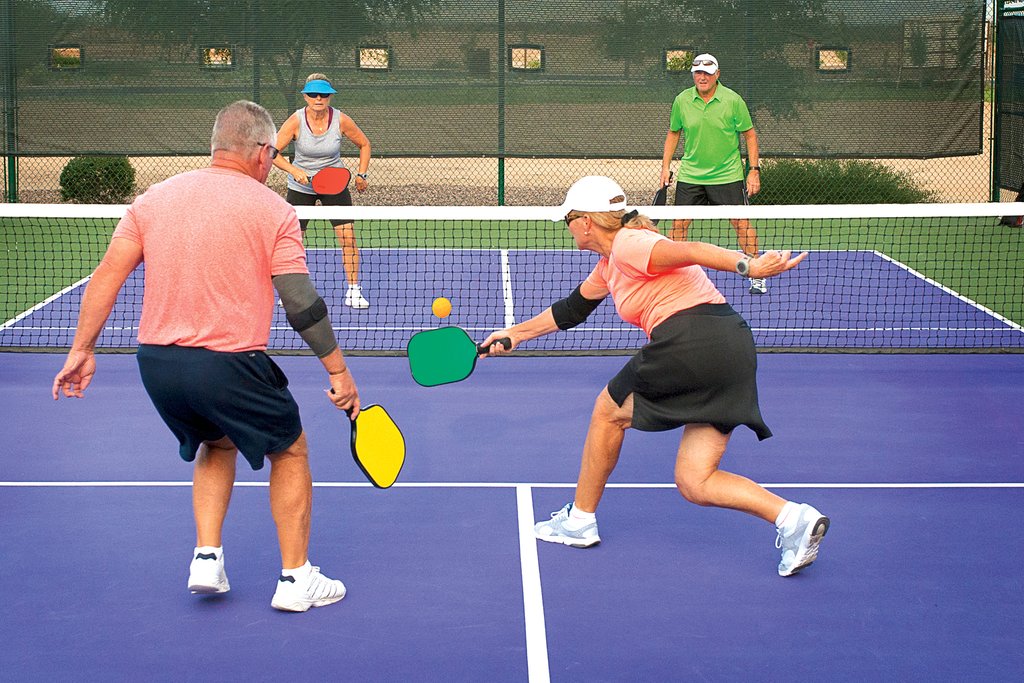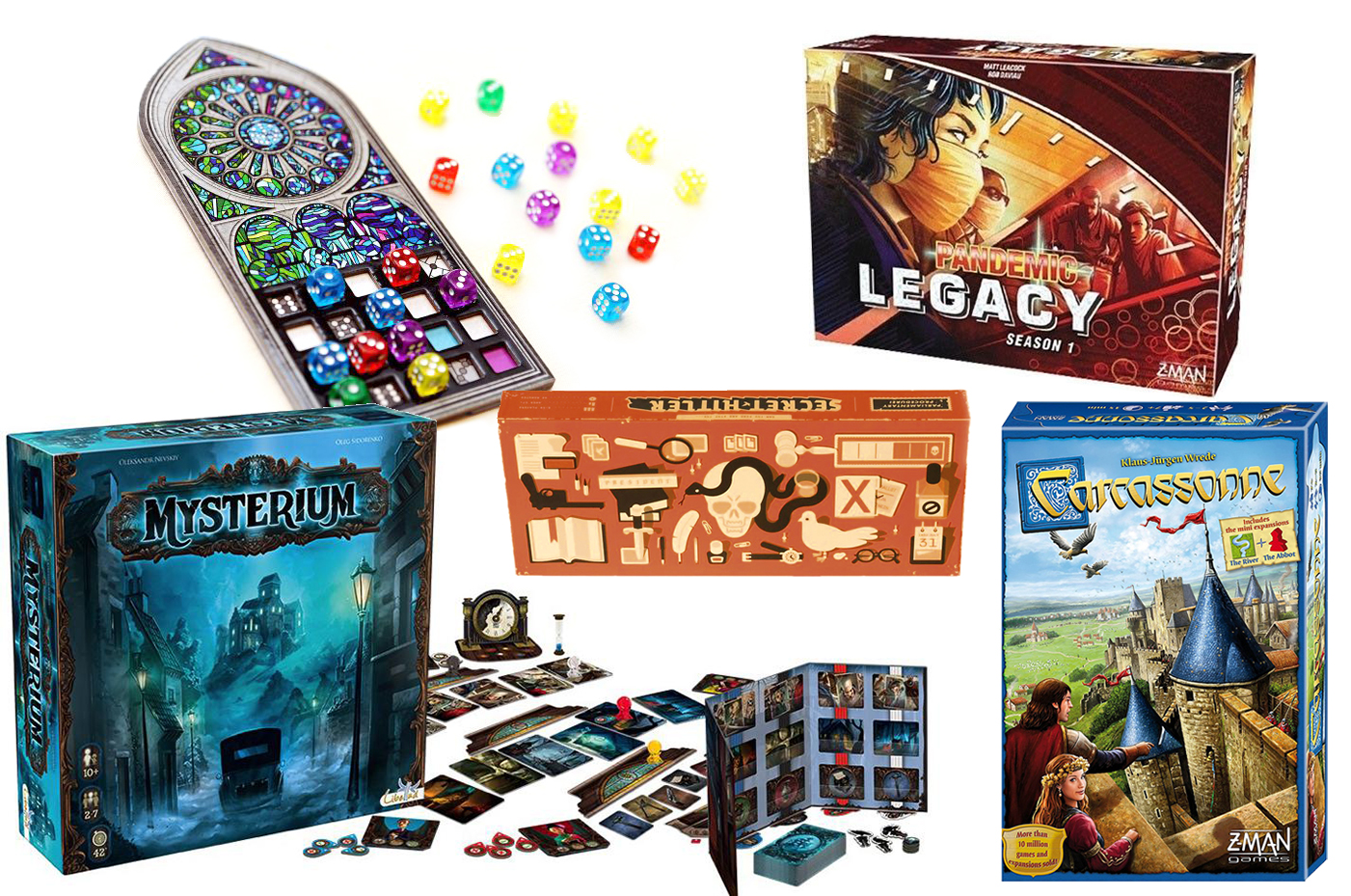You may be about to discover a new—and addictive—pastime
Headlines in Naples, Florida, in 2016 named the city “Pickleball Capital of the World.” Naples was the site of the Southern Tropics pickleball tournament in February, and it was two men from Kitchener-Waterloo, ON, who brought the gold to Canada.
Pickleball? Yes, pickleball: people of all ages are playing across North America and the sport is wildly popular among retirees and other older Canadians. The game is also played in Mexico, the Netherlands, India, Great Britain, Australia, China, Spain, France, Singapore, Aruba, the Czech Republic, Finland, and probably other places.
A racquet sport featuring elements of tennis, squash, Ping-Pong, and badminton, pickleball has been around since 1965 but remained a well-kept secret until 2008, when it hit the seniors’ market. (It’s been said that the sport was named for the inventor’s dog; in fact, the dog came later and was named for the game, which got its title from “pickle boat,” a pet name for the slowest boat in a rowing competition.) Today, estimates suggest that more than two million people are playing the game, 68 per cent of them over the age of 60.

Another kinder feature is the non-volley zone, or “kitchen,” an area seven feet (2.1 metres) on each side of the net into which you can’t step unless the ball has landed there first—this prevents spiking.
Good hand-eye coordination helps, but anyone can play. The game is usually played in teams, with two people on each side of the net, though singles can play, as well. There’s also wheelchair pickleball. In all cases, the first side to reach 11 points wins, though the winning score can be 15 or 21 in tournament play.
Art Krahn, administrator of the KW (Kitchener-Waterloo) Pickleball Association (KWPA), says that it’s mainly seniors playing the game in Ontario; he estimates that 80 to 85 per cent are over 60. The KW club plays in a badminton facility with six courts that easily convert from badminton to pickleball.
Many Canadians don’t know about pickleball because it’s mainly hidden away—inside community-centre gymnasiums, badminton clubs, and adult- lifestyle communities—due to our colder climate. But the sport is much more visible in the United States and therefore growing more quickly. In warm-weather climates such as Arizona, California, and Florida, the game is played outside, often on converted tennis courts, but more and more permanent pickleball courts are being made. While pickleball is also exploding here, the indoor nature of the game presents problems: as interest grows and more and more people want to play, it becomes harder and harder to get court time.
Guelph, ON, has about 100 players registered with the Guelph Wellington Seniors Association. For indoor play, three pickleball courts are available at the Evergreen Senior Centre, and three at the West End Community Centre. Typically there are 12 people playing and about 30 or more waiting on the sidelines for their turn. However, the city recently “lined” another two tennis courts, doubling the outdoor facilities—a good beginning.
USA Pickleball Association (USAPA) ambassador Jim Ludwig says there’s a kind of “Build it and they will come” mentality to the growth of the sport. He cites Veterans Community Park in North Naples, Florida, where organizers set up four temporary courts in 2014 and shortly thereafter had 100 players. A few months later, 150 players were showing up, so four more temporary courts were set up. By the end of April 2015, the park had 250 players and had scheduled construction of eight new permanent pickleball courts, for a total of 16 courts.
Ludwig is also executive director of Pickleball For All, a non-profit organization he founded along with his wife, Carol, to get the funding to go into schools with equipment, teach the game, and leave the equipment behind.
“Pickleball is easy to learn, and since the courts are smaller, there’s less running, with less stress on joints, but it still offers a good aerobic workout for all ages,” Ludwig says. “Plus, you can walk onto a court and start playing right away. Players are always welcoming and you’ll find players of all levels.”
Pickleball is a sport that everyone can enjoy, whether you simply want to have fun at the beginner level or you want to train to achieve more advanced rankings. In the sport’s rating system, the top level, Level 5, denotes “very highly skilled”; two Level 5 players in Kitchener-Waterloo are Looey Tremblay and Paul Leeder. The two are ambassadors for the game not only in the Kitchener-Waterloo area but throughout Ontario and beyond. “We want to get the game into our schools and universities,” Tremblay says.
Pickleballers in Hamilton have conducted summer camps to train teachers, and likewise, KWPA has obtained funding to provide a free program for “juniors” (ages 10–17) for the entire year. This funding, provided by the Ontario Sport and Recreation Communities Fund, also finances the development of an introductory coaching guide.
Patricia Archambault, tournament director at KWPA, successfully ran the 2015 Pickleball Canada Eastern National Championships at RIM Park in Waterloo and hopes to organize many more at that “great facility.” She is spearheading a pilot project to form a pickleball league, starting in October with 11 cities, mainly in southwestern Ontario. The notion is that each city-team would have the opportunity to play another up to two times a month.
In April 2016, Archambault, Tremblay, and Leeder participated in the first ever US Open Pickleball Championships in Naples, testing their skills against 835 participants from seven countries and bringing home bronze and silver medals.
(Other Canadians participated, too, but didn’t medal.) Roughly 12,000 spectators took in the six-day event, far exceeding organizers’ hopes for 5,000. While Tremblay and Leeder are long-time pickleball partners, Archambault used the “Partner Search” tool on the USAPA website and found four different partners with whom to participate in various events at the tournament.
There are pickleballers in every province—from recreational to club to tournament-in-training players. So pick up a paddle and join in!
Photos: iStock/BHPix.






Pingback: 10 Ways to Make New Friends - Good Times